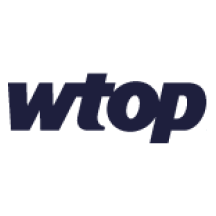In the film *Minority Report*, directed by Steven Spielberg, the year is 2054. Society has largely eradicated crime through the use of psychics who predict offenses before they occur. Individuals labeled as “pre-criminals” are arrested for crimes they have yet to commit. However, the film highlights the flaws in these predictions and the potential for manipulation. It serves as a cautionary tale about the balance between personal freedom and security, a theme that resonates more today than ever.
In recent years, a concept known as "safetyism" has gained traction. This ideology posits that safety, particularly from physical or emotional harm, should take precedence over other values such as freedom, autonomy, and open discourse. When safety is prioritized above all else, the normalization of state control under the guise of public welfare becomes a concern. Dissenting opinions are often labeled as dangerous, leading to a chilling effect on free expression.
A recent example of this trend can be seen in the controversy surrounding American Christian singer Sean Feucht's performances in Canada. Several cities canceled or denied his permits, citing "health and safety" concerns. This included not only physical safety but also the need to protect individuals from ideas or language that might be deemed upsetting.
Similarly, Nova Scotia implemented a sweeping ban on all forest activities this summer without a permit, imposing fines of $25,000 plus tax and a victim’s surcharge. The provincial government justified this action under the Forests Act, claiming it was necessary to mitigate fire risks. However, the ban extended far beyond what was necessary to prevent fires, prohibiting activities such as fishing, walking dogs on trails, or having picnics. The rationale was that anyone in the woods could potentially engage in dangerous behavior, such as lighting a campfire or committing arson.
While it is reasonable to punish those who violate burn bans, treating all nature enthusiasts as potential criminals reflects a *Minority Report*-like mentality that is incompatible with a free society. Some supporters of the forest lockdown even suggested that hikers could inadvertently cause fires by dropping water bottles that might focus sunlight, a scenario that seems far-fetched. If such reasoning were applied broadly, it could justify banning numerous activities, including driving or swimming.
This mindset of prioritizing safety has been used to justify government overreach in various instances. In 2022, it was cited to invoke the Emergencies Act against the non-violent Freedom Convoy protests. It also influenced the Trudeau government’s decision to classify all plastic items, from straws to medical equipment, as “toxic” under federal environmental law. Additionally, it has led to the implementation of “bubble zone” laws that prioritize the emotional comfort of some individuals while infringing on the constitutionally protected rights of others.
History provides examples of the dangers of such thinking. The Canadian Constitution Foundation recently released a report detailing significant rights abuses committed in the name of safety. In 1942, the federal government forcibly removed 22,000 Japanese Canadians from their homes, confiscated their property, and interned them, all justified by national security concerns following the attack on Pearl Harbor, despite a lack of evidence against them.
The rationale of safety also played a role in the prolonged lockdowns during the COVID-19 pandemic. It was used to justify mass arrests during the 2010 G20 summit in Toronto, where over 1,100 individuals, including peaceful protesters and journalists, were detained. Furthermore, Pierre Trudeau’s invocation of the War Measures Act during the 1970 October Crisis suspended civil liberties nationwide, leading to restrictions on public assembly and warrantless searches.
When governments label everything as dangerous, they create a framework where all actions are subject to control. Treating citizens as pre-criminals undermines the principles of a free society.

 Local News in Ontario
Local News in Ontario

 The Toronto Sun MMA
The Toronto Sun MMA Canada News
Canada News The Richmond News Business
The Richmond News Business AlterNet
AlterNet Medicine Hat News
Medicine Hat News Raw Story
Raw Story LiveNOW from FOX Lifestyle
LiveNOW from FOX Lifestyle WTOP Washington DC
WTOP Washington DC